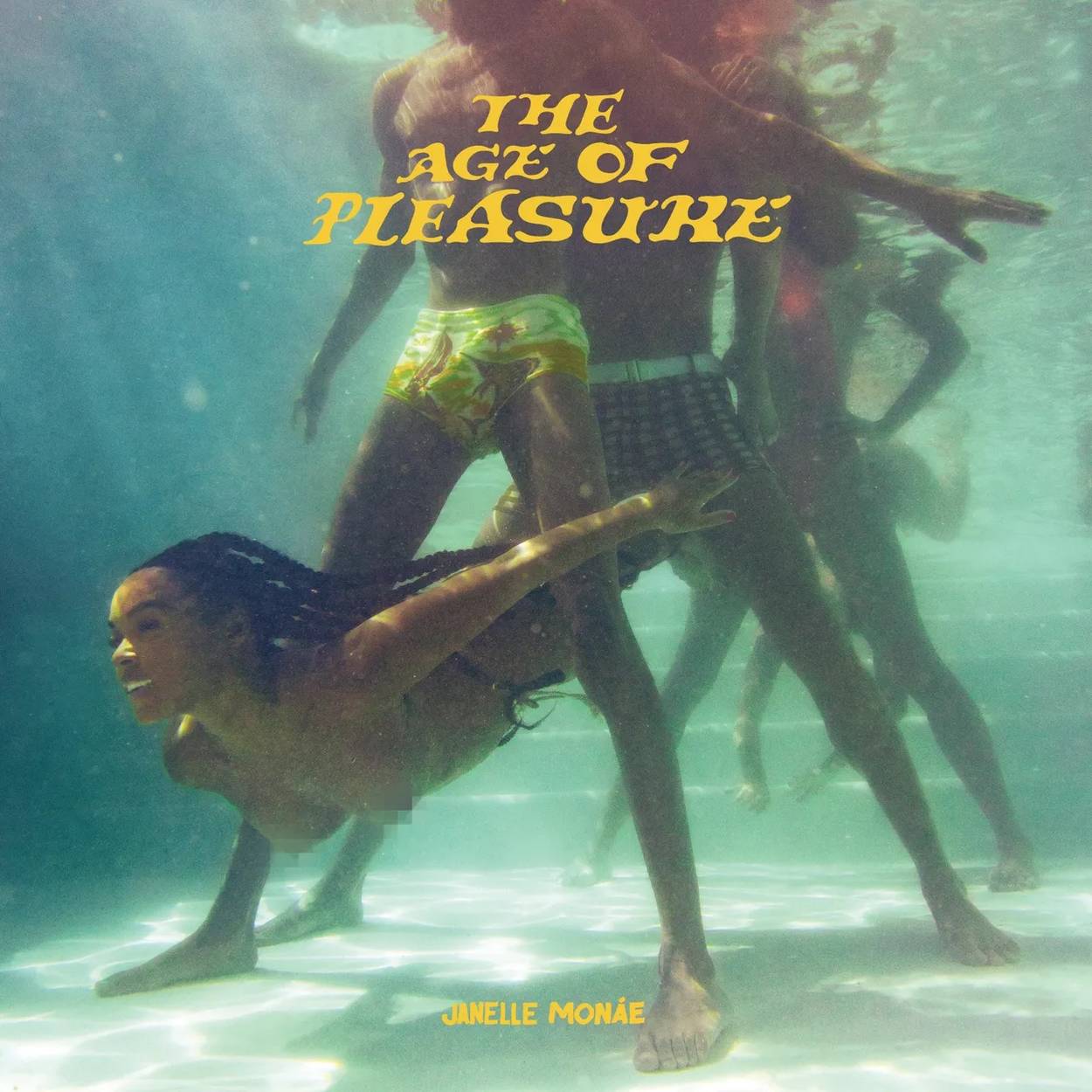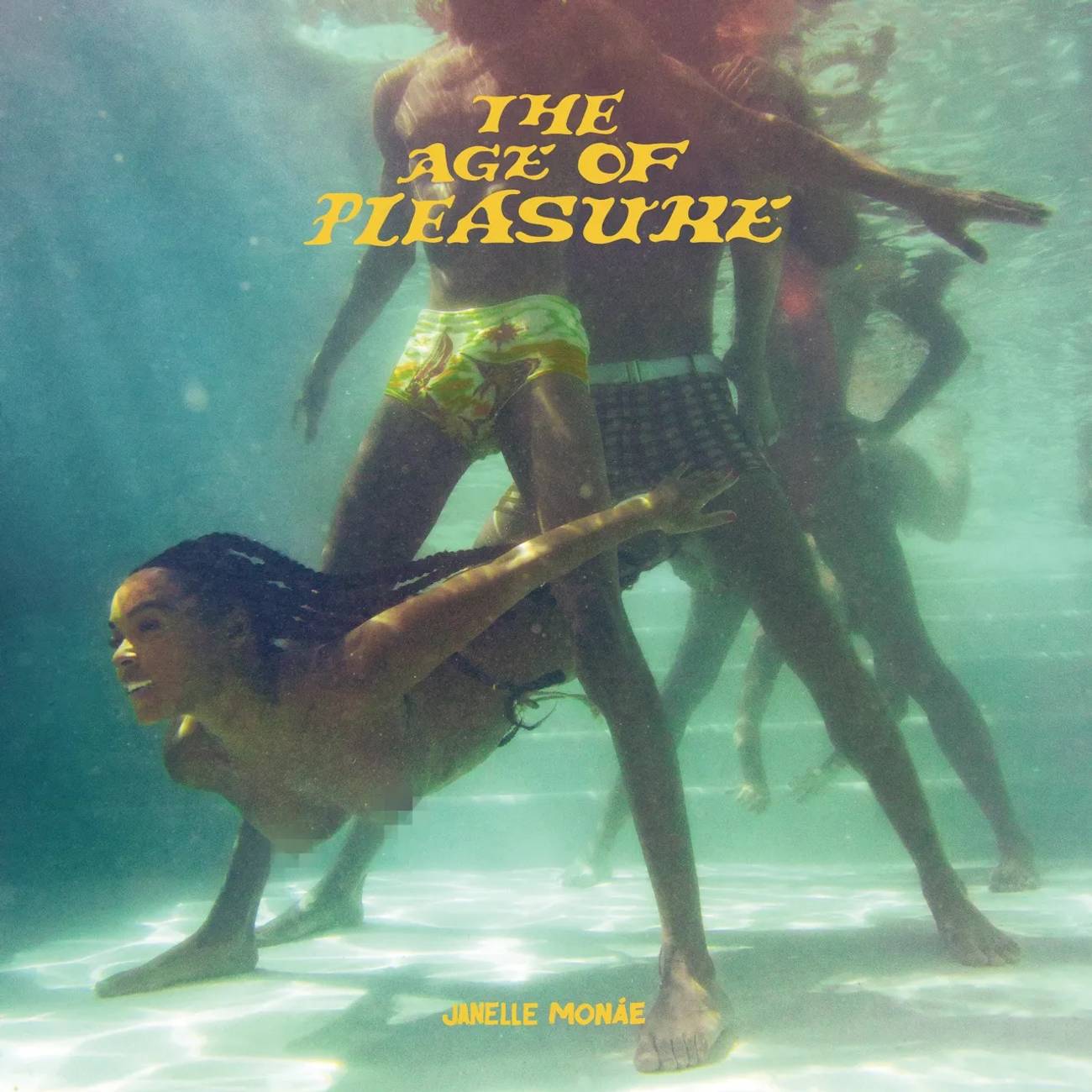The Return of Pleasure
Janelle Monae’s latest is a laid-back middle finger to our culture’s new Puritans




It’s an awfully strange time to call for an Age of Pleasure. In 2023, governors are making drag shows illegal. Teenagers declare that pleasure is something that’s not relevant to the plot of movies and should therefore be removed from the public sphere. Billionaires bemoan the rise of nonprocreative sex. Call it a backlash, or a moral panic, but pleasure is getting crowded out.
Enter Janelle Monae. Her new album, The Age of Pleasure, is both a reinvention and a call to—well, it’s too cool and relaxed to say it’s a call to arms. The Age of Pleasure wants to both turn down and turn up the temperature. As is the responsibility of every generation of horny people, Monae is remaking pleasure in her own image.
Monae first exploded into indie music circles during the nebulous late-aughts period, presenting a fully formed sci-fi world with Metropolis and then The ArchAndroid. Her character, Cindi Mayweather, was an android who found herself falling in love with a human, a crime for which she is on the run.
Although The Age of Pleasure starts off with Monae saying “I’m not the same” over and over again, there’s a clear sense of continuity between the Monae of today and Cindi Mayweather. The difference is that now she doesn’t have to run. Instead, as the opening track makes clear, she “floats.”
“Float” is a perfect summer jam, the type of song you’re glad to hear coming from a backyard barbecue or a passing car. The lush horns of Seun Kuti and Egypt 80 provide an ample background for Monae to brag about everything from her bisexuality to her knot-tying abilities. “You like shibari? Watch while I show you the ropes,” she jokes to a would-be paramour. She’s channeling Muhammad Ali’s cockiness with a refreshing playfulness. Nothing is too serious here, a welcome reprieve from the ever-escalating stan wars which have come to define pop music.
Probably the biggest evolution Monae has here is her use of global sound. She told Variety that Pleasure is “specific to this Pan-African crowd” and that the album could be considered a sonic “love letter to the diaspora.” There’s the Nigerians Kuti and CKay on “Know Better,“ the Ghanaian American Amaarae on “The Rush,” and a general spirit of Jamaican dance hall and Afrobeat permeates throughout.
The album’s second track, “Champagne Shit,” feels like a direct reference to Kuti’s father, the legendary Fela Kuti, who had a lot to say about “Expensive Shit.” That feeling moves through the album’s third track, “Black Sugar Beach,” which takes the groove of “Champagne” and places it at the forefront. It’s a wonderful and natural transition, taking the strip club feeling of “Champagne” and moving into a dance party.
Monae, who has also published a book of collaborative sci-fi, brings a writer’s attention to detail to songs that might feel cliche otherwise. On “Haute,” a track about looking hot, she says she looks better than “David Bowie in a moonage dream.” On “The Rush,” which is about sudden infatuation, she sings about wanting “your leg against my thigh.” On the single whose video could stop traffic, “Lipstick Lover,” she says she likes “lipstick on my neck.” Letting the listener fill in the details allows the lyrical seduction to actually work.
It’s hard to change one’s persona in popular music—when you’re one thing, that’s likely all people will remember you as. It’s just as hard to talk about attraction these days in ways that won’t get you screamed at or canceled. Monae has found a way through that thorny thicket with a simple reminder packaged in a vital album. Pleasure feels good, and can sound even better.
David Meir Grossman is a writer living in Brooklyn. His Twitter feed is @davidgross_man.